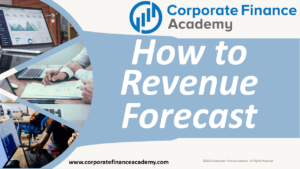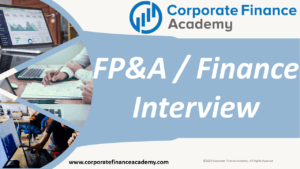
- Hello!
If you want to be successful in corporate finance, there are certain corporate finance fundamentals that you need to develop in your first few years (and ideally maybe even before you take your first job). This is not an all-encompassing list of what it takes to succeed, but rather, the list that is almost a prerequisite if you want to move up the corporate ladder.
Creating financial models is one of the largest parts of the job in early career finance. This goes hand in hand with needing to be a savvy Microsoft Excel user, as that is where most of these models will be made. These are things like doing making an estimate/forecasting file, building a model that can perform different types of analysis, which leads to the next item…
Be able to perform analysis on financials, models, and other sets of data. Examples of this might include variance, scenario analysis, basic statistics (standard deviation, etc.) or things like looking at productivity walks (price, mix, volume, productivity).
Discounted Cash flow models / NPV / IRR / Payback are all calculations you will come across. Know how to create these as well as how to interpret the results.
This is something that is taught in school, but I’m not sure everyone comes into the workforce with the ability to read and explain the main financial statements in their own words. Every successful person in corporate finance must understand the Income Statement, Balance Sheet, and Cash Flow Statement. You want to be able to talk through each line item of the each and understand how they all link together.
If you want to be a CFO at some point, you better understand Debits / Credits / T-accounting. I can tell you first hand I have had to personally explain to the CFO of a fortune 50 business what the debits and credits of a transaction were. This is not work just for the “accountants”. Ultimately, you need enough accounting knowledge to be dangerous.
You need to know what a General Ledger and a Subledger are and how they work. I can tell you I really did not know what these practically were when I started my first full time job. These systems are your financial bible. Know how to get in there and see the data, understand how it flows, get saavy at pulling the data you need.
Learn what an account reconciliation is and how it is done. These are the cornerstone of financial compliance. Some day if you are the CFO, you will be grateful to know that your team is taking these account reconciliations seriously.
It is required that you become very good at Microsoft Excel, this is a non-negotiable, start now. Get fast, use shortcuts, know core tools like vlookups, pivot tables, sumifs, subtotals, etc like the back of your hand.
You also must able to use Microsoft PowerPoint well… similar to Excel, get fast, use shortcuts. You also need to learn how to use Microsoft Outlook well enough to be efficient and not make mistakes (be organized).
Every company has their own software for their General Ledger, Subledgers, ERPs, and so on. Make sure you ramp up quickly on whatever specific software your company uses: Oracle, SAP, JD Edwards, etc.
Understand communication works best in this order… in person > on phone > via text / DM > e-mail
When you do e-mail others, know how to write them clearly and concisely. Think before you send an e-mail.
Know how to set-up and facilitate a meeting
Learn how to communicate in person clearly and concisely
Continue to READ BOOKS on business as well as publications like the Harvard Business Review, The Economist, the Wall Street Journal, the Financial times to develop your financial and business knowledge and vocabulary
Pay attention at your company and learn the company specific language and acronyms that are used. Also, try to familiarize yourself with the strategy of your company and your segment (use annual reports if publicly traded).
Listen to investor calls (for your company and others) to see how the CFOs of the world talk through their results and answer questions.
Don’t just learn how to do an analysis or task, but make sure you understand what it means, why you are doing it, how it fits into the broader company, what impact it has, ask why five times, and so on. This is perhaps the biggest differentiator I have seen in early-career employees for those that go on to success and those that do not.
Be able to explain back things in your own words and to repeat it back to someone. If you understand what is going on, you will be viewed as a critical and strategic thinker. This is so important in your early career. Always strive to understand why you are doing what you are doing.

Before we get into the details of different sales forecasting methods, I want to tell you a story! But first… for those of you who

If you work in Financial Planning & Analysis or Corporate Finance, you most likely will have to develop a revenue forecast at some point. the

“Tell me, what are some of the things you aren’t good at or that you need to work on”. I froze. My internal monologue was